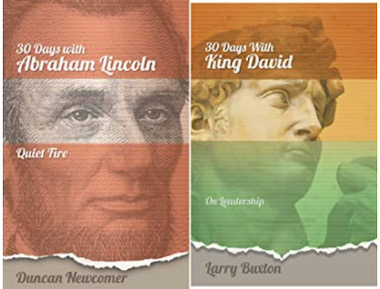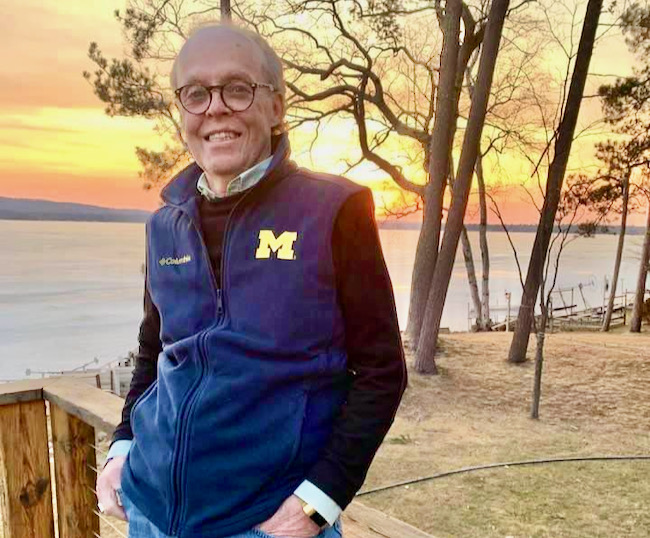In ’30 Days’ and many ways, 4 authors are encouraging a national conversation

At Front Edge Publishing, we are proud of the way our writers collaborate with each other out of a shared commitment to building healthy communities through the books we publish.
Our goal, we have said for many years, is to “become a constructive part of the national conversation.” This week, we have seen this goal embodied by all four authors involved in our ongoing “30 Days With” series of inspirational books.
(Here’s the Amazon series page for the first 2 volumes that already have been released. Volume 3, 30 Days with America’s High School Coaches by Martin Davis is coming in September. Volume 4, 30 Days with E. Stanley Jones by John Harnish will follow that.)
Conversation 1: Larry Buxton and Martin Davis on ‘Speaking Up’ with Corliss Fingers
Here is Larry Buxton’s new Leading with Spirit video about the importance of speaking up in our “national conversation” these days with so much at stake. As inspiration, he cites Corliss Fingers. Please, listen to Larry for a moment:
Care to know more about Corliss Fingers. Read this:
Corliss Fingers has been breaking barriers throughout her career. Following a successful 15-year stint at the University of Maryland, Southern University hired her in 2012 as the first female head strength and conditioning coach for a Division I football program. Today she’s head strength coach at Bethune-Cookman University and recognized nationally by her peers as a role model for the next generation of strength coaches. “When I started,” she says, “I was on an island by myself. I was a unicorn, and a lot of guys couldn’t handle it.” She was also hesitant to speak out because she was both the only woman and the only Black person on staff.
That further description of Fingers’ influence is not from Larry. It’s from Martin Davis’s recent column in Christian Science Monitor, headlined: Women strength coaches do the heavy lifting for women’s athletics
Together, these authors are lifting up the voices of these women and sharing them across print, audio and video to readers nationwide.

Conversation 2: John Harnish and Duncan Newcomer on ‘Finding the Right Word’ with Abraham Lincoln
In a short-and-eloquent column this week, John Harnish, the author of the upcoming 30 Days with E. Stanley Jones, addressed his audience that skews toward clergy and lay leaders in congregations nationwide. For a long time, his readers have enjoyed receiving his Monday Memo—a fresh perspective on finding inspiration as well as wrestling with spiritual challenges in everyday life.
This week, John wrote a column he called, Finding the Right Word, a reflection on the search for just the right word—a quest that certainly is shared by clergy and teachers as well as writers. Why should we care about words? John argues that it’s partly because we shouldn’t contribute to the cheapening of our common language and partly because we should celebrate “the beauty of words.”
What was Jack’s inspiration?
Finding the right word meant everything to Abraham Lincoln. His spiritual life is most clearly visible to us through his words. Lincoln’s choice of words shows us quite distinctly his ideas, his values and the terrain of his spirit. As an example, consider Lincoln’s choice of the word “disenthrall” in the Second Inaugural, one of the great speeches of American history. By this, he means we must put away our old ways of thinking and seeing, putting away what he calls “the dogmas of the quiet past.
In his column, John attributes that key illustration to the work of Lincoln scholar Duncan Newcomer, who wrote: 30 Days with Abraham Lincoln—Quiet Fire. John’s column is quoting from that book.
Together, these two authors are lifting up Lincoln’s wisdom about the ways we can be our best as we dare to step up into the national conversation.
All four authors met recently on Zoom and are intentionally trying to share a sampling of each others’ best insights across their audiences. This is social networking among a high level of writers that our publishing house not only welcomes—we celebrate it!
To all of our authors we say: Please, go and do likewise!